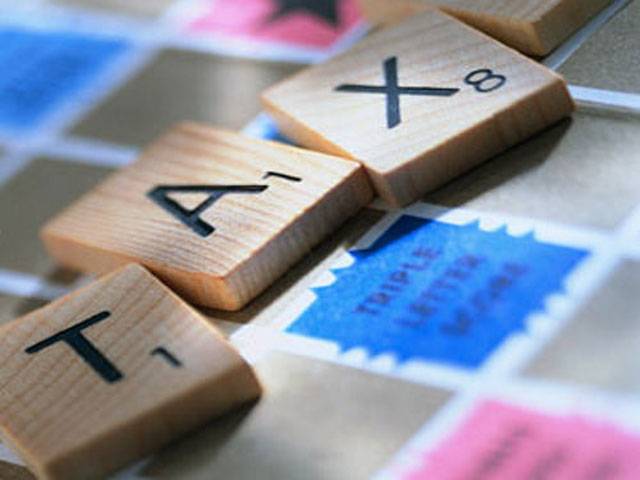Islamabad -Taking unfriendly and unpopular taxation measures, the Pakistan Muslim League-Nawaz government has put taxation burden of Rs168 billion on inflation-stricken masses in the 2013-2014 budget. Increase in the standard rate of sales tax by one percent would fuel the inflation as well.
The newly elected government took heavy taxation measures that would directly affect the common people. For revenue generation, the government decided to increase the standard rate of sales tax from 16 to 17 percent that would enhance the prices of all commodities. Similarly, prices of cars, beverages, cigarettes, battle nut and leave, education fee and cost of marriage will soar, following the taxation measures proposed in the budget.
The government proposed Rs2475 billion-revenue collection for the financial year 2013-2014 wherein Rs168 billion would come from new taxes.
The proposal of charging additional five percent sales tax (along with standard rate of 16%) on supply of electricity/gas to un-registered industrial and commercial consumers having monthly bill exceeding Rs15,000 was also made.
The government decided to increase the rate of federal excise duty (FED) on aerated beverages from 6 to 9 percent. Ten percent FED on the import/manufacturing of cars above 1800cc was proposed. The government enhanced the rate of tax on registration of motor vehicles. Tax on vehicles up to 850cc was increased to Rs10,000 from Rs7500. Tax on 851cc to 1000cc vehicles was enhanced to Rs20,000 from Rs12,500. Tax on 1001cc to 1300cc vehicles surged to Rs30,000 from Rs17,500. Tax on 1301cc to 1600cc vehicles soared to Rs50,000 from Rs30,000. Tax on 1601cc to 1800cc vehicles was revised to Rs75,000. The government proposed Rs100,000 tax on vehicle of 1801cc to 2000cc and Rs150,000 for 2000cc and above.
Additional FED of 4 paisa per kg on imported seeds, Rs1 per kg on locally produced cooking oil/ghee was imposed.
Adjustable withholding tax on hotels/clubs/event venues/restaurants was proposed for wedding functions. The rate of withholding tax on cash withdrawal from banks has been enhanced to 0.3 from existing 0.2 percent.
In another unfriendly measure, the budget proposed an adjustable advance tax of 5 percent of fee on educational institutions whose annual fee is above Rs200,000.
The duty on betel nuts was increased from 15 to 20 percent and betel leaves from Rs200 per kg to Rs300 per kg. The imposition of 2 percent 'further tax' on supplies to unregistered persons was proposed.
The fiscal relief package granted to Khyber Pakhtunkhwa, Federally Administered Tribal Areas would be abolished through the new Finance Bill.
The budget also proposed to charge 16 percent FED on financial services. To ensure filing of returns and broadening of tax base, adjustable withholding tax will be levied on renewal and license fee of cable operators and other electronic media, which shall be collected by the Pakistan Electronic Media Regulatory Authority.
In relief measures, the rates of tax slabs of salaried individuals were proposed to increase to twelve slabs from six. There will be no tax on income does not exceed Rs400,000 per year. In the upper slab (12th slab), where the taxable income exceeds Rs7,000,000, the rate of tax would be Rs30 %.
To promote industrialisation and investment in the country, the period of income tax holidays was increased to 10 years from 5 years. To encourage hybrid vehicles for fuel conservation, imported hybrid cars of up to 1200cc was exempted from withholding tax, while withholding tax on up to 1800cc hybrid vehicles was reduced by 50 percent and 25 percent for up to 2500cc vehicles. To provide relief to corporate sector, the rate of tax for non-banking companies is being reduced from 35 to 34 percent.It was proposed that deduction rate of withholding tax on the payment of prise bond would be enhanced from 10 to 15 percent. The rate of initial depreciation would be reduced from 50 to 5 percent on plant and machinery. The exemption limit of withholding tax on investment in National Savings Centres will be withdrawn.
Friday, April 19, 2024
Laymen burdened with Rs168 billion new taxes

President calls for meaningful dialogue to end polarisation
April 19, 2024
KP minister briefed on issues about sales tax on services
April 19, 2024
64th anniversary of freedom fighter Mirzali Khan marked
April 19, 2024
893,000 students appear in SSC exams in KP
April 19, 2024
Hepatitis Challenge
April 18, 2024
IMF Predictions
April 18, 2024
Wheat War
April 18, 2024
Rail Revival
April 17, 2024
Addressing Climate Change
April 17, 2024
Justice denied
April 18, 2024
AI dilemmas unveiled
April 18, 2024
Tax tangle
April 18, 2024
Workforce inequality
April 17, 2024
New partnerships
April 17, 2024
ePaper - Nawaiwaqt
Advertisement
Nawaiwaqt Group | Copyright © 2024





